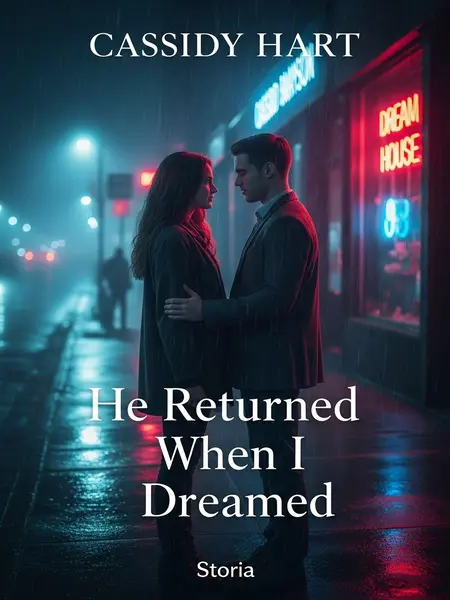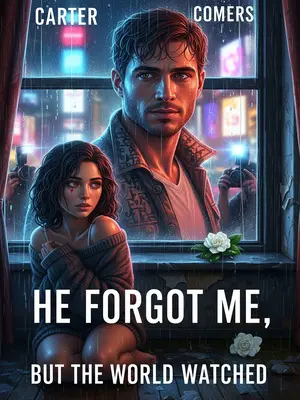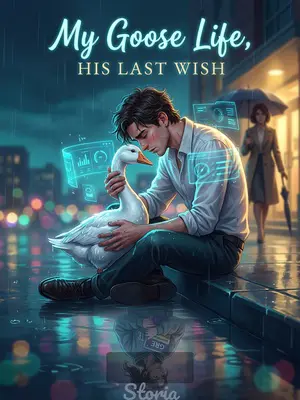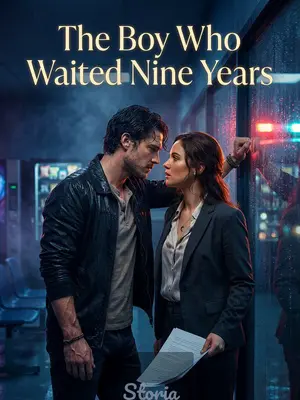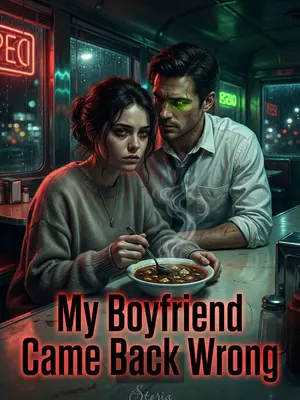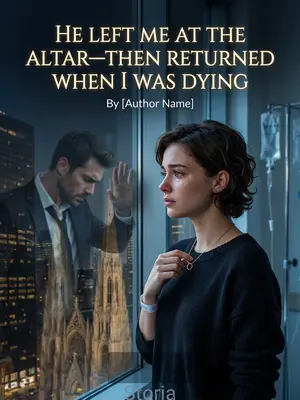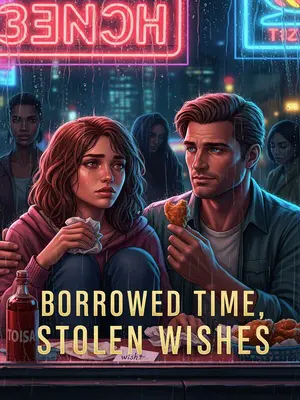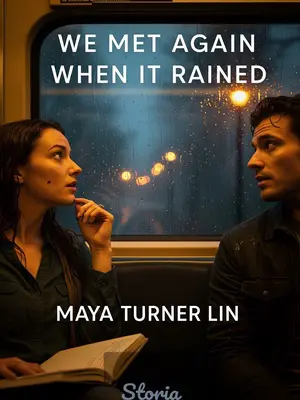Chapter 1: The Boy Who Never Returned
The boy I secretly loved for ten years died the summer he turned eighteen.
It’s a memory that still weighs on me, heavy in my chest—like July humidity that just won’t let up. Sometimes I pause, let the ache settle in, and wonder if it’ll ever really fade, no matter how many seasons pass.
On July 7th, when I was twenty-five, he appeared before me, standing there with an umbrella in his hand.
God, I remember the way the air felt—so thick and restless, clouds hanging low and threatening rain. And then there he was, like he’d stepped right out of an old photograph I’d hidden away. His eyes and brows still looked so young. I stared at him, my voice lost, tears blurring everything.
My throat closed up. The words got stuck somewhere between disbelief and longing. Honestly, I wanted to run to him, to grab his sleeve and ask if he was real. But all I could do was stand there, letting the tears spill over. The world seemed to hush around us, like even the wind was holding its breath.
I knew this was just a dream—a dream I’d bought, somehow, with the help of magic I barely understood.
It’s strange, knowing you’re dreaming and still feeling every heartbeat like it’s brand new. I’d spent so long chasing sleep, hoping for even a glimpse of him, and now, finally, here he was—close enough to touch, but never truly mine again.
Eli Grayson wasn’t coming back. He’d died the summer he turned eighteen, and every part of me still felt that loss.
Sometimes I still say his name out loud, just to hear how it sounds echoing in an empty room. It’s a name that tastes like sunlight and heartbreak. That summer, the world kept spinning, but for me, everything tilted sideways.
He was on a flight, heading overseas. I still remember.
It was supposed to be the start of everything for him. He had this way of making even a cramped airport terminal feel like the edge of some grand adventure. We all thought he was just getting started.
Before the plane took off, his SAT scores had already come in.
He’d barely let the ink dry on his acceptance letters before those scores arrived. The whole town was buzzing, like we’d all won something through him.
As expected, he was the top scorer in the state.
His name was posted on the high school marquee, and our class Facebook group blew up with neat rows of congratulatory messages.
There were photos, too—someone snapped a shot of the marquee, his name shining in the morning sun. The comments rolled in: proud, awestruck, a little bit jealous. Everyone saw how incredible he was.
But this boy with the bright future—this golden child—died suddenly. No warning. Just gone. It was abrupt, senseless, tragic.
One minute he was here, the next he was gone. Nothing made sense anymore. The news hit our little town like a thunderclap. Even the teachers wandered the halls in a daze for weeks after.
When the news of Eli’s death reached me, I was still checking time zones online, wanting to text him when his plane landed.
I’d mapped out the flight path, double-checked the arrival time, fingers itching to send a message: “How was the flight? Did you sleep?” I wanted to be the first voice he heard when he landed, even if it was just through a screen.
In front of my laptop, my phone kept buzzing.
I ignored it at first, too focused on imagining what he’d say when he got to his new dorm. I pictured him rolling his eyes at the cafeteria food, grinning through the jet lag.
When I finally checked it, it was flooded with messages about his death.
The screen was a blur of notifications—group chats, missed calls, even a couple of voicemails. My heart dropped with every new ping.
I stared. Blank.
I couldn’t process it. The words just didn’t fit together—Eli, gone. It felt like a bad joke, a glitch in the universe.
In an instant, my world went silent—a dead, heavy quiet.
It was the kind of silence that swallows you whole. I could hear my own heartbeat, loud and frantic, like it was trying to break out of my chest.
My vision spun. My whole body seemed to be falling, a wave of weightlessness crashing over me.
Everything I’d been holding together just crumbled. I remember grabbing the edge of the desk, knuckles white, trying to keep from slipping away with the rest of it.
Is this some kind of sick joke…
I wanted to scream, to throw something, to make it all untrue. But the world just kept on, indifferent.
How could he…
He was supposed to be untouchable—too bright, too good for anything bad to happen. But life doesn’t care about that.
That day, after I finally came to, I crouched on the floor shaking, burying my head and sobbing uncontrollably.
My whole body shook, tears soaking into the carpet. It was the kind of grief that wrings you out, leaves you empty and raw. I hugged my knees and let it all pour out—every hope, every memory, every what-if.
In the seven years since, Eli’s name faded to black and white.
He was just a story now, the kind people whisper about in hushed voices. A photograph yellowing on the wall. Time moved on, as it always does, and the world forgot how brightly he’d burned.
Everything about him slowly slipped from everyone’s memory.
Year by year, his face grew blurrier in old yearbooks, his laugh harder to recall. Even his favorite songs stopped playing on the radio, replaced by new voices and new dreams.
When he was occasionally mentioned, it was always with sighs and regret.
There’d be a pause in the conversation, a shake of the head, someone saying, “Such a shame, really.” And then they’d move on, as if he’d never changed the shape of their lives.
Time left him behind—he stayed eighteen, always at his brightest.
Frozen in that summer, all promise and sunlight. The rest of us kept aging, but he stayed golden, untouchable.
But I—I can’t forget him.
His memory clings to me, stubborn and sharp. Some nights, I still hear his voice in the quiet, or catch a glimpse of his smile in a crowd.
I can’t let him go.
Even when I try, he’s there—woven into the fabric of my days. I see him in the little things: a song on the radio, the way the sun hits the sidewalk, the taste of strawberries in summer.
To me, everything about him is still vivid.
The sound of his laughter, the curve of his handwriting, the warmth of his hand on my shoulder. It’s all still here, as real as the ache in my chest.
I’ve never dreamed of him, but I don’t know why—I still believe he’ll come back.
It’s foolish, I know. But hope is stubborn. Sometimes I wake up reaching for him, half-expecting to find him sitting at the foot of my bed, grinning like he used to.
My friends all say I’ve lost my mind. So let me be crazy.
They roll their eyes, tell me I need to move on, but I can’t. If this is madness, I’ll wear it proudly. I’d rather be crazy than let him fade away.
Very soon, I’ll be able to see him.
I whisper it to myself like a promise, something to hold onto when the nights get too long.
Three years ago, on the anniversary of Eli’s death, I went to visit his grave.
The cemetery was quiet, the grass cool beneath my knees. I brought daisies—his favorite—and sat with him awhile, talking to the stone as if he might answer back.
On the way back, I wandered aimlessly.
My feet carried me through old neighborhoods, past houses that hadn’t changed in decades. The world felt both familiar and strange, as if I was walking through a dream.
Wait. On a familiar street, I noticed a new shop—a little pink house.
It looked like something out of a storybook, all soft colors and whimsy. It shouldn’t have belonged there, nestled between the old bakery and the hardware store.
Among a row of plain, bookish-looking stores, it stood out.
It was almost too bright. Like someone had spilled a bucket of bubblegum paint, then built a house around it. I couldn’t help but stare.
Like it didn’t belong.
It drew the eye, a quiet invitation to step closer. The kind of place you’d expect to find in a dream, not on Main Street.
There was a huge sign at the door: “Dream House.”
The letters were painted in swirling gold, catching the afternoon light. I felt a strange flutter in my chest, half curiosity, half dread.
I distinctly remembered—it hadn’t been there before…
I walked this street every week. I would have noticed something like this. It was as if it had appeared just for me.
I stopped an old woman selling daisies on the sidewalk and asked,
“Hi, do you know when that pink shop opened up?”
The old woman looked at me strangely.
She squinted, like maybe she thought I was joking. Her hands were rough and weathered from years of tying flower bundles.
“What pink shop? Honey, are your eyes okay?”
Her voice was gentle, but there was a hint of concern. She glanced at me, then at the spot where the shop stood.
I stared at her in surprise—it was right in front of me…
I half-expected it to vanish. But no, it was still there. Bright. Impossible.
Some invisible force seemed to draw me toward it.
My feet moved before I could think, pulled by something deep inside me—a hope I hadn’t dared to name.
I tried to push the door, but it wouldn’t budge.
It was like pressing against a wall of glass. The handle felt cool and stubborn in my hand.
Just as I was about to turn away, the mailbox on the left spat out a silver-white card, followed by a flyer.
The sound startled me—a mechanical whir, then a soft thud. I bent down and picked up the card, its edges smooth and cold.
I read the message:
“Hello, welcome to the Dream House, chosen one, Miss Cassidy Hart.
Sensing the deep, powerful longing in your heart, the Dream House will grant you a chance to purchase a dream.
The transaction amount is based on ‘merit points.’ When your card is full, it will turn pink, and the Dream House will open its doors for you.
The Dream House will fulfill all your dreams. We look forward to meeting you!”
The words shimmered, almost alive. My heart skipped. I ran my thumb over my name—Cassidy Hart—etched in silver script.
I stared blankly at the card and flyer in my hands. I don’t know how long I stood there before two little girls with backpacks approached me.
They wore matching rain boots, their hair in messy braids. They watched me with wide, curious eyes.
They looked at me with concern. “Are you okay, lady?”
The taller one tugged on her friend’s sleeve, glancing between me and the pink house.
I snapped back to reality and handed them the flyer. “Do you know the Dream House?”
My voice shook. I felt ridiculous, but I had to ask.
“What’s this? Are these just doodles?” One girl peered curiously at the flyer.
She turned it upside down, squinting, then shrugged. Her friend giggled.
“You… can’t read it?” My voice went dry.
They shook their heads.
Both of them, in perfect unison, like they’d practiced it. I felt a chill run down my spine.
A shop no one else could see, words no one else could read—but I saw them, I understood…
It was like being handed a secret. I clutched the flyer tightly, as if holding on to a rare hope.
July 7th. Overcast.
The sky was heavy, clouds piling up like bruises. The air smelled like rain, and everything felt on edge.
I got a phone call.
The ringtone was Eli’s favorite song. I let it play for a moment before answering, just to hear his memory echo through the room.
“Cass, tomorrow is the high school reunion. Everyone’s coming except you—you have to show up!”
The class president was on the other end, reminding me—again—to show up.
She sounded both cheerful and exasperated, like she’d rehearsed this speech a dozen times already.
Since graduation, our class picked a time each year to meet up.
It was tradition—one of the few things that survived the years. Even as people moved away, got married, started new lives, we always tried to gather at least once.
We all got along well and kept in touch.

